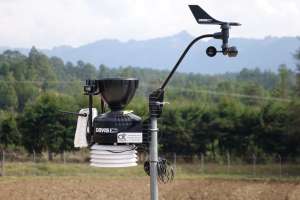Note: this project has been updated. See 2024 Fall update below.
Under normal environmental conditions, bark beetles play an important role in the health of forests by colonizing and helping remove weak, diseased, and overgrown trees. With climate change, however, excessive reproduction of bark beetles has generated greater tree mortality. To protect forest health, landowners often resort to logging to remove infested trees, a practice referred to as sanitation logging. Mexican law establishes that landowners are responsible for controlling bark beetles, and owners must obtain authorization from the authorities to carry out sanitation logging. Activities to control bark beetles, however, vary within the MBBR. Postdoctoral researcher Erika Gómez Pineda and collaborators have conducted interviews with local and government individuals to determine the reason for these differences.

Interview results reveal differences in the application of the legislation. For example, in the state of Michoacán, one tree with bark beetles is considered an active shoot, while in the State of Mexico, three or more affected trees are counted together as an active shoot. There also appears to be an influence from the concentration of sawmills in Michoacán. There is a need to develop more uniform and sustainable strategies to strengthen forest health rather than relying solely on sanitary logging which may be driven by interests beyond conservation.
For background on this issue and how drought occurrence factors in, please see Dr Gómez Pineda and collaborators' previous publication titled "Drought occurrence and forest management: Interrelated drivers of sanitary logging in central México," also posted on our Publications page under Forest Health.
2024 Fall Update
As part of her investigations into the effects of forest sanitation, Dr.Erika Gómez Pineda and her team at UNAM’s Center for Research in Environmental Geography (CIGA) in Morelia are evaluating forest soils in five ejidos within the MBBR in areas where logging has occurred. The purpose of this part of the investigation is to determine if forest sanitation is contributing to the degradation of the oyamel forest. Between July and October 2024, Erika and team took samples of leaf litter and soil at sites where forest sanitation (select logging) has been carried out to control bark insect outbreaks. Leaf litter and soil samples are being processed in the Laboratory of Soil Biogeochemistry and in the Laboratory of Systematics and Ecology of Mycorrhizae to determine 1) physicochemical characteristics, 2) environmental DNA, 3) enzymatic activity, and 4) existing soil microorganisms. These data will be used to determine how forest sanitation may be contributing to the degradation of the oyamel forest within the Reserve and to help design effective forest management strategies.




